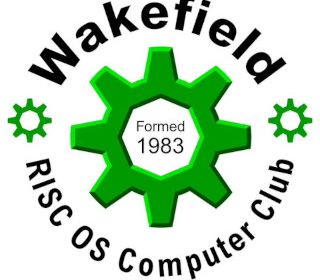If your use of RISC OS goes back to the early days of the operating system, there’s a very good chance you’ll have either have played Lander or, at the very least, will have found it lurking on one of the discs that came with your computer. It was supplied on the ‘Applications Discs’ that came with early Archimedes and A3000 computers.
The game was based around a very simple concept: You control a craft called a Lander, and you fly around the protecting your world by eliminating enemy ships – and, if you wished, trees and buildings (in which case, so much for protecting your world).
In reality, it was anything but that simple – especially at first (or after a long period of not playing it). The game offered a 3D perspective view, with the Lander craft centred, and the landscape – with hills and valleys, seas and lakes (all plotted using a patchwork of squares) – would scroll in the direction of travel. Control was via the mouse, with buttons handling thrust and weapons fire, and mouse movement changing the attitude and direction of the ship (e.g. pushing the mouse forward would tilt the ship forward, so with thrust held down, it would propel forward in that direction). And, of course, you had to content with gravity, and a limited supply of fuel.
The game was effectively a demonstration version of a separately released commercial game, called Zarch (which became Virus on other platforms), in which one of the various types of enemy craft is seeding the landscape with a virus – so the longer it took to defeat them, the more widespread the virus.
Lander (and Zarch) was originally developed by David Braben (one of the co-authors of Elite, and also known for involvement with the Raspberry Pi), and recently Mark Moxon has been taking a deep dive into the game, documenting the code, and hacking it to provide larger landscapes, and to make it work on a wider range of machines.
Mark will be joining the next Wakefield RISC OS Computer Club (WROCC) meeting to talk about and demonstrate what he has achieved.
The meeting, which will be held online, will take place on Wednesday, June 5th at 7:45pm. There are no entry requirements other than being able to join a Zoom meeting – so you’ll need a computer or other device that runs the software, an internet connection, and the meeting credentials, which you can get by contacting the group if you don’t already have them. (If you’ve joined other recent WROCC meetings, the details are the same – so you should have them.)
Although the meeting is open to any RISC OS user, regardless of WROCC membership status, it’s well worth supporting the group by joining; the cost is just £7.50 each year, and you get the group’s self-titled monthly newsletter sent to your inbox as a PDF file, along with access to their online discussion forum.




